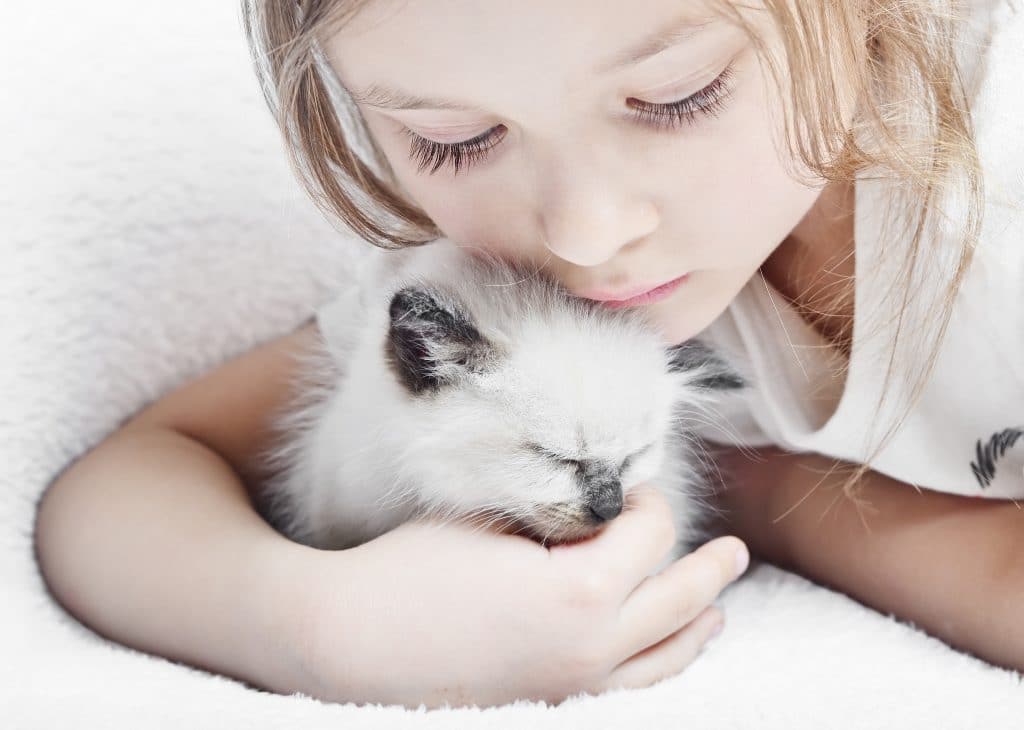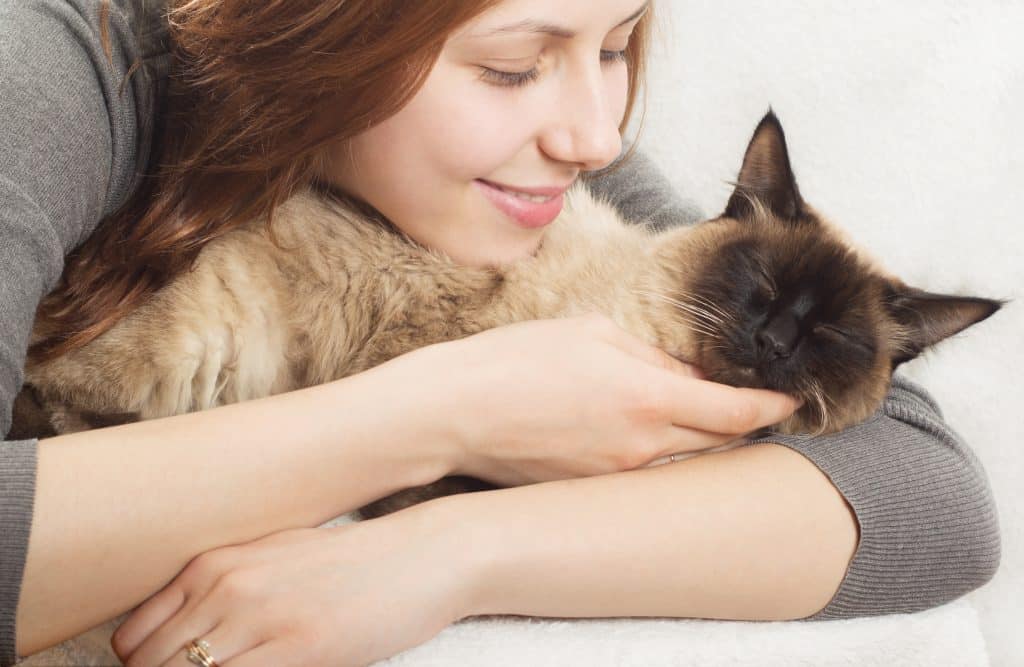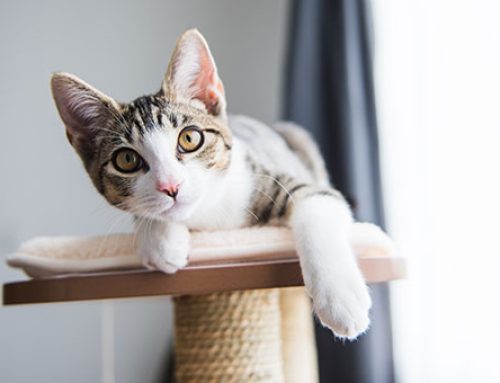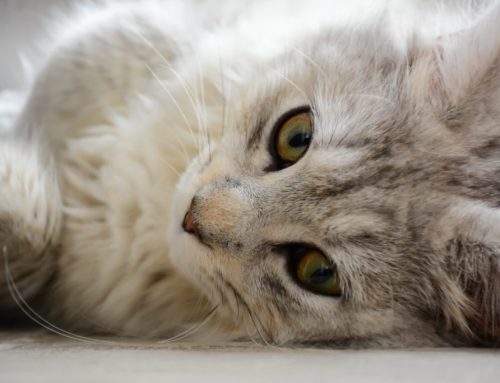Feline leukemia virus (FeLV) is one of the most common infectious diseases in cats, affecting between 2 and 3% of all cats in the United States.
HOW DOES A CAT CONTRACT THE FELINE LEUKEMIA VIRUS?
The virus is shed in saliva, nasal secretions, urine, feces, and milk of infected cats. Cat-to-cat transfer of the virus may occur from a bite wound, hissing, during mutual grooming, and through casual contact via the shared use of litter boxes and feeding dishes. Transmission can also take place from an infected mother cat to her kittens, either before they are born or while they are nursing. It is important to keep new cats or kittens separated from cats already in the home until they have been tested negative for FeLV.
Cats at greatest risk of FeLV infection are those that could be exposed to infected cats, either via close or casual contact or through bite wounds. Such cats include cats living with infected cats, cats allowed outdoors unsupervised where they may be bitten by an infected cat, and kittens born to infected mothers.

HOW DOES THE VIRUS AFFECT THE CAT?
Although many FeLV infected cats can lead long happy lives, FeLV is the most common cause of cancer in cats. It may cause various blood disorders, and may lead to a state of immune deficiency that hinders a cat’s ability to protect itself against other infections. Because of this, common bacteria, viruses, protozoa, and fungi that usually do not affect healthy cats can cause severe illness in FeLV-infected cats.
HOW WOULD MY VETERINARIAN DIAGNOSE FeLV?
A blood test is used to diagnose FeLV. One of these tests, called an ELISA test, is usually performed first as a screening tool, and can be run in a veterinarian’s office. It may take 8-12 weeks for a cat to test positive for the virus after potential exposure. It is recommended to perform the blood test 3 months after your cat has potentially been exposed to FeLV.
As always, consult with your veterinarian to determine which tests are appropriate for your cat.
WHAT IS THE TREATMENT FOR FeLV?
Unfortunately, there is currently no cure for FeLV. Veterinarians treating and managing FeLV-positive cats usually treat specific problems (like prescribing antibiotics for bacterial infections, or performing blood transfusions for severe anemia). Even in a FeLV negative cat, any medical condition that arises should receive prompt attention. Cats positive for the virus shoulder be kept strictly indoors in single cat households to prevent transmission to other cats. A raw food diet should never be feed to any cat with decreased immune function due to increased risk of serious infection.

HOW DO I PREVENT MY CAT FROM CONTRACTING FeLV?
The Feline Vaccination Advisory Panel recommends administering the FeLV vaccine to all kittens. The FeLV vaccine is a series of two vaccines, separated by 2-4 weeks. The vaccine is considered to be a non-core vaccine for adult cats, unless they are at risk of exposure. Vaccination of all kittens is recommended because a kitten’s status (indoor versus outdoor, low risk versus high risk) may change, and susceptibility to persistent infection is believed to be highest in kittens. Loyal Companions Animal Hospital carries a FeLV vaccine that only needs to be boostered every 2 years after the initial vaccine if it is determined that your cat may be at risk of contracting FeLV.
All cats should be tested for FeLV prior to introducing them into a home or kept separate until FeLV testing has been completed.
The only sure way to protect cats from contracting FeLV is to prevent their exposure to FeLV-infected cats. Keeping cats indoors, away from potentially infected cats is recommended. If outdoor access is allowed, provide supervision or place cats in a secure enclosure to prevent wandering and fighting. Food, water bowls and litter boxes should not be shared between FeLV-infected cats and non-infected cats. Unfortunately, many FeLV-infected cats are not diagnosed until after they have lived with other cats. In such cases, all other cats in the household should be tested for FeLV. Ideally, infected and non-infected cats should then be separated to eliminate the potential for FeLV transmission.
Owners contemplating FeLV vaccination for their uninfected cats should consider the cats’ risk of exposure to FeLV infected cats and discuss the advantages and disadvantages of vaccination with a veterinarian. Preventing exposure remains important even for vaccinated pets.
WHAT IS THE PROGNOSIS FOR A CAT DIAGNOSED WITH FeLV?
It is important to realize that cats with FeLV can live normal lives for prolonged periods of time. Once a cat has been diagnosed with FeLV, careful monitoring of weight, appetite, activity level, elimination habits, appearance of the mouth and eyes, and behavior is an important part of managing this disease. Any signs of abnormality in any of these areas should prompt immediate consultation with a veterinarian.
















Leave A Comment